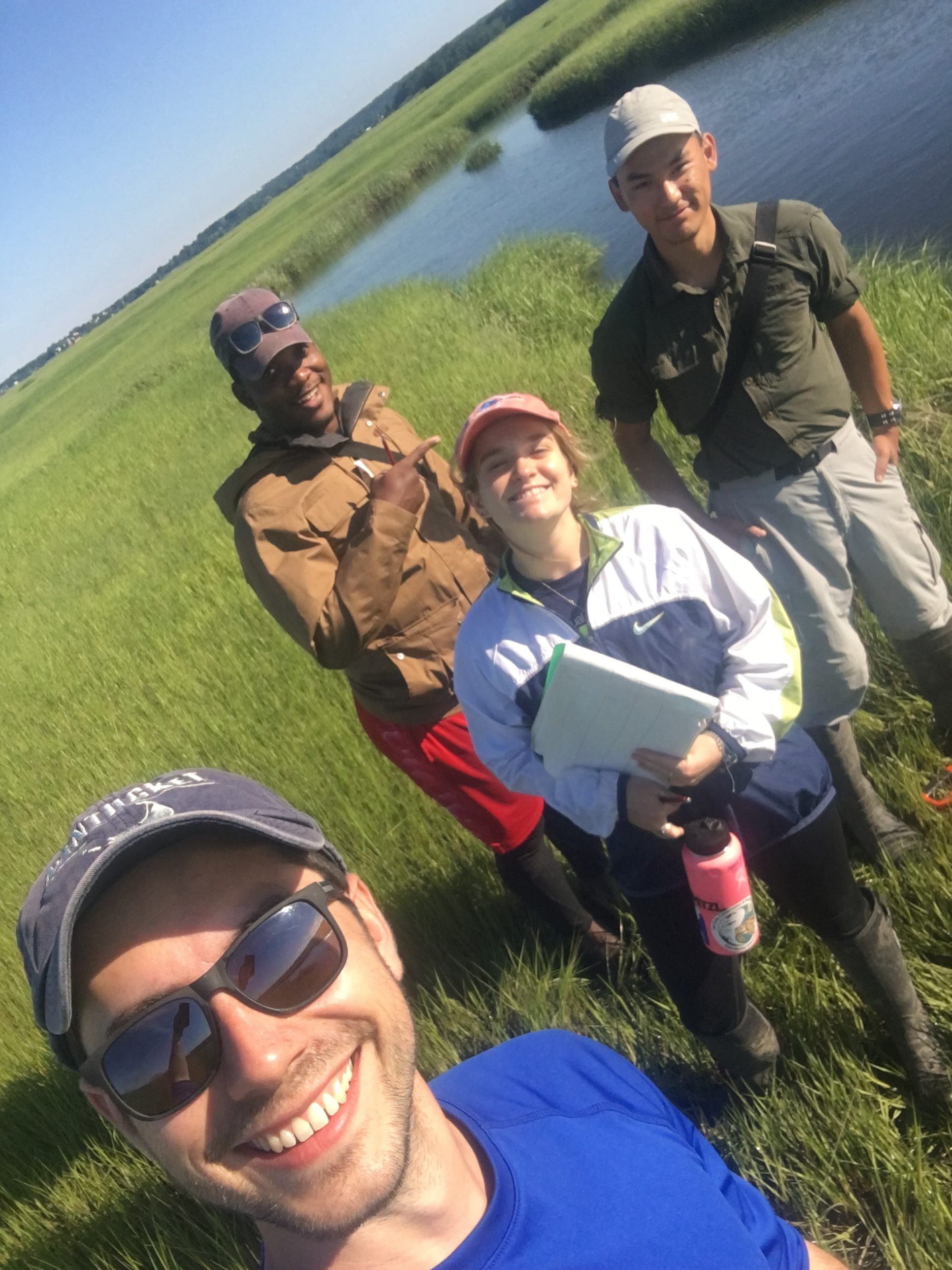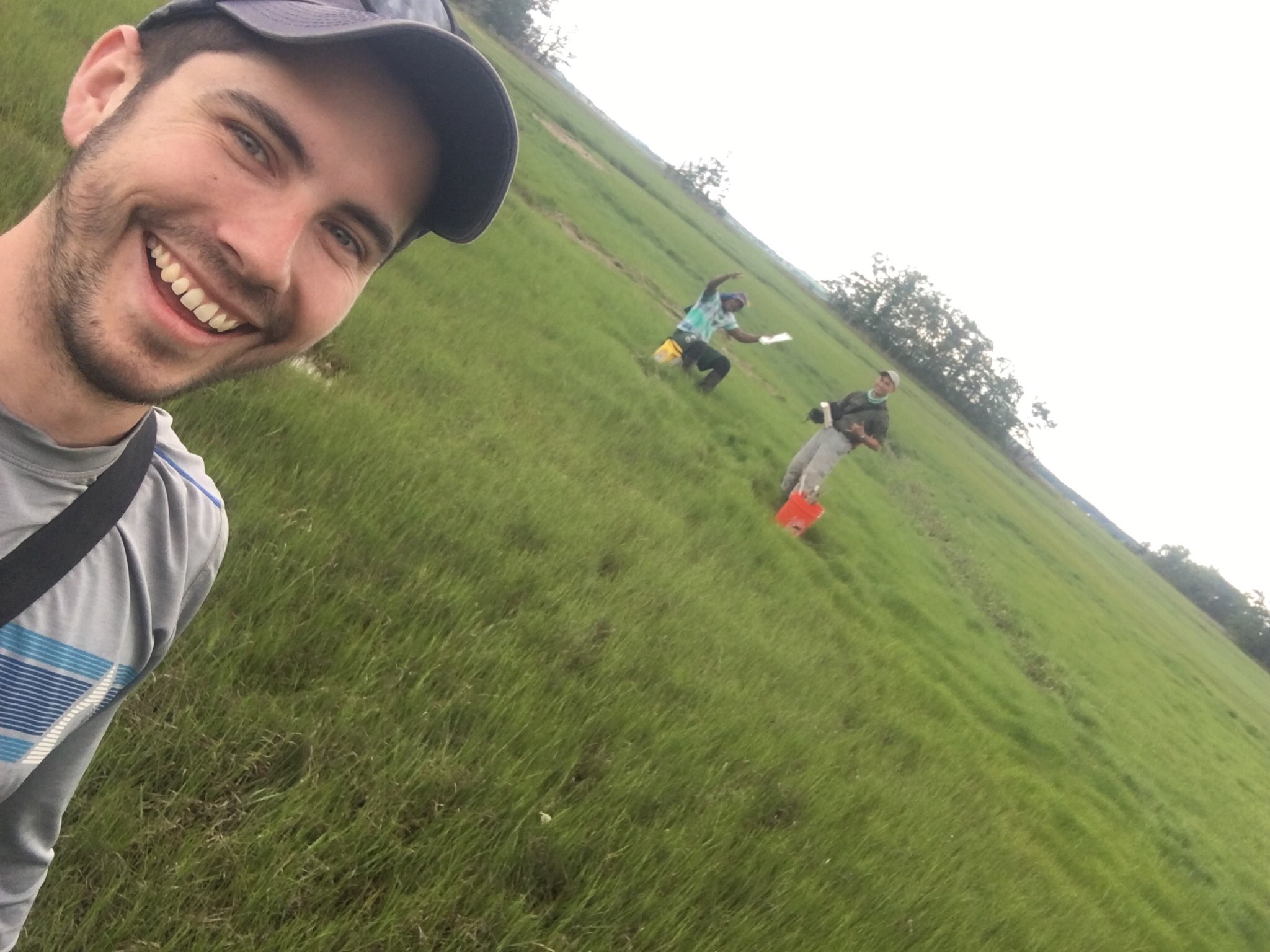
“Salt Marsh? That just sounds like mud, and holes and ditches with patches of grass growing on them.” Those were my thoughts when I first heard about the opportunity to work on a salt marsh at LTER, Marshview station.
I recently graduated from the University of Massachusetts Boston with a bachelor’s degree in biology. I learned about this opportunity to work at LTER through Jarred Byrnes, Professor of biology/marine biology at UMass Boston, for whom I’ve worked for in one of his laboratories in the past.
The first week out in the marsh was a bit challenging, with everything from the loose clothes I had to wear to protect myself again mosquitoes, and deer fly whose bite can really hurt, and finally to jumping and falling into creeks, which were always a source of laughter for me and my team. Despite how challenging the first week was, I knew it was only matter of time before I got accustomed to being out in the marsh.
Now, into my last week as a lab tech, I’ve become very comfortable and confident into being in the marsh, and in the words of my team, aka “the crab crew,” I finally got my marsh feet. Daily, we do several things from collecting samples of grass such as the Spartina alternaflora and Spartina patens, to birds watching and recording their behaviors, and setting up transect and plots. I’ve enjoyed all of it, though maybe a bit less on those hot days!

Coming in as a lab/field tech, I expected to gain some experiences in the research field, but never as much as I’ve gained in the past two months alone. I’ve learned a whole lot about marine life from, green crabs, hermit crabs and horseshoe crabs, which really fascinate me for some reason that I haven’t figured out yet, to different species of birds who depends on the salt marsh for survival. From this unique experience I’ve gotten a sense of the work that goes into research, mainly the part which involves running the experiment. I’ve gained confidence in my ability to share ideas which can be very useful, and it also reminded me how much I enjoy being a problem solver. Among everything that is great about working at LTER, I really valued the relationships that I’ve build with all three of my teammates, which I had the pleasure working with. It’s always worth it to experience new things, the salt marsh will surely teach you that.
–Steevens Excellent (Field and Lab Technician, Byrnes Lab of UMass Boston)
Leave a Reply